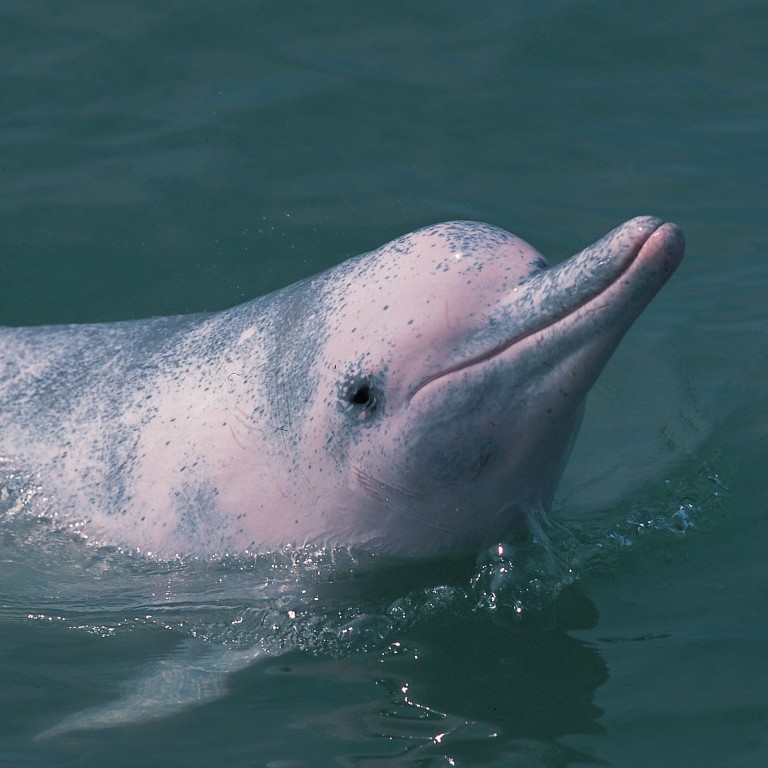
Samuel Hung Ka-yiu Can Save Hong Kong's 60 Endangered Dolphins
The lives of Chinese White Dolphins are constantly under threat from pollution and infrastructure development.
Dr. Samuel Hung Ka-yiu is the founder and chairman of the Hong Kong Dolphin Conservation Society.
I was born and raised in Hong Kong. I went to study in the U.S. when I was 16. Before I went to the U.S., I was quite an indoorsy person. There weren’t that many chances to get in touch with nature. My interest in marine life came from the documentaries I watched when I was a kid. I used to love this wildlife series on TVB Pearl: I’d ask my dad to record it for me every week. The competition was fierce in the U.S. for dolphin researchers. It’s a dream job for many marine biologists and of course, for me as well.
Dolphins are so charismatic—everyone loves them. That’s why it’s so hard to get into the industry. We even had to pay to get an internship position! I came back to work in Hong Kong in 1997, after getting my master’s degree. At the time, the new airport in Chek Lap Kok was under construction and the government had hired an expert from overseas to do research into dolphins in Hong Kong. He invited me to go and intern for him. It was only then that I found out there are dolphins in Hong Kong.
I’ve been working [in dolphin research] in Hong Kong for almost 20 years. Many overseas academics learned about how vibrant Hong Kong’s sea is a long time ago, but most Hongkongers only know about the fish they buy in the wet market. They didn’t even know that there were dolphins, coral and other marine animals in Hong Kong’s seas, not until the past decade. It’s unfortunate. The estuary area west of Hong Kong is exactly where the Chinese White Dolphins are suited to live. That’s the reason for this unique situation: this very special type of dolphins in such proximity to us urbanites.

The number of dolphins in Hong Kong has been dropping. And with more things affecting their lives, we need to speak up for them. I founded the Hong Kong Dolphin Conservation Society in 2003. One of the most important things about dolphin conservation is raising public awareness.
As an academic, your duty is to do research and write papers to be placed on a bookshelf. But I think Hongkongers should know more about their plight. We conservationists are always trying to solve the conflicts between humans and animals. Because of how close we live to the dolphins, there are constant conflicts. We are looking for solutions for peaceful cohabitation with them. Sometimes Hongkongers are still too anthropocentric. We only decide on things based on what’s good for us humans, but we don’t think about nature.
The government wants more economic development. Therefore, dolphins have a very low priority. People may think our clients are the government and others who pay us, but our ultimate client is actually dolphins. Everything we do is to serve their best interests. Science is independent, and all we have to do is to tell the truth. We cannot downplay the issue—if the number of dolphins has dropped, the number has dropped. We’re not saying that dolphin conservation trumps all, but can’t we compromise and find a middle ground in between?
People may ask: what’s the use of conserving dolphins? There are practical reasons, but there’s also a lot of hidden value. They are a symbol of Hong Kong, and for a cosmopolitan city to have such unique marine animals—it’d be a shame if we didn’t look after them. If more people care about [the dolphins], the government will feel the pressure. Take, for example, the third runway project [at the airport]: When there are a lot of people against a development, the government will need to be more careful. Although they are still going to build the runway and we now have to take it to court, at least the government knows we are not the only ones opposing the project.
The awareness level is high. People now know that not only do dolphins exist, but we affect their lives daily. Even if you ask a random stranger on the street, they’d know the number of dolphins is dwindling. But is that enough? They need to be aware that we are actually part of the solution. Do we need to do something dramatic to help conserve dolphins? Not really. Many small actions can change a lot. For example, vote for the Legco candidates who share the same views as you regarding environmental conservation issues.
Many dolphins’ lives are affected by pollution in the sea. So in your everyday life, even eating more organic vegetables can help by decreasing the use of pesticides in farms. These are small compromises and personal choices that we can easily make every day—if you are willing to.

